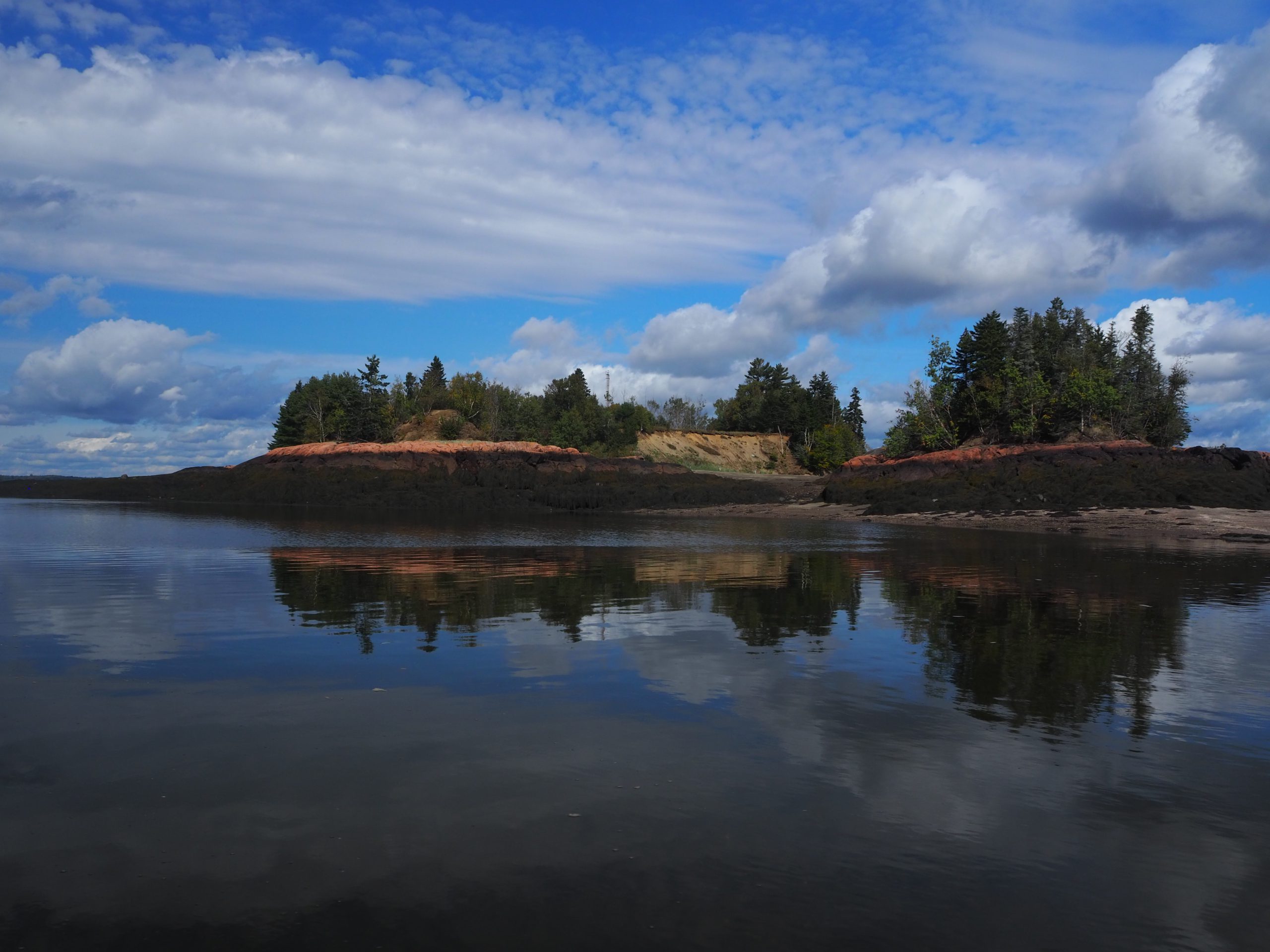A new story map highlights the partnership between NCCOS and the U.S. Army Corps of Engineers (USACE) Engineering With Nature Ⓡ (EWNⓇ) Program to advance nature-based solutions in cold regions. The project team will conduct research to develop nature-based alternatives to stabilize and mitigate ongoing erosion at Saint Croix Island, Maine, an International Historic Site managed by the National Park Service (NPS).

The 6.5-acre uninhabited island is located in the middle of the Saint Croix River on the border of US and Canada, and managed by the NPS as an International Historic Site under a formal agreement with Parks Canada and in consultation with the Passamaquoddy Tribe. This region, also known as a “cold region,” experiences 20-foot tides, and harsh winter storms and ice. Over the centuries, erosion and sea level rise — made worse by climate change — have taken their toll on the island and led to extensive loss of habitat.
The article and story map highlight the cultural and historic significance of Saint Croix Island, the challenges, and NPS’s interest in exploring nature-based approaches as an alternative to conventional infrastructure. Natural alternatives identified as part of this collaborative research effort will be transferable to other projects in cold regions to advance the use and acceptance of natural approaches to restoration in these challenging environments.
This research is part of NCCOS’s ongoing efforts to support coastal and community resilience through advancement of natural and nature-based solutions. This collaborative effort involves partners from USACE Engineer Research and Development Center, NPS, Passamaquoddy Sovereign Tribe, EA Science, Engineering and Technology, Inc., Parks Canada, National Research Council of Canada, University of Virginia and the Dredge Research Collaborative.
